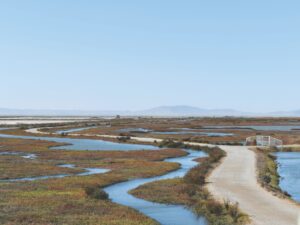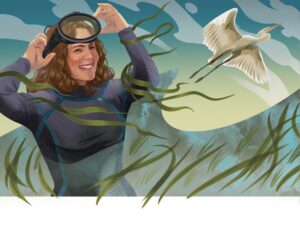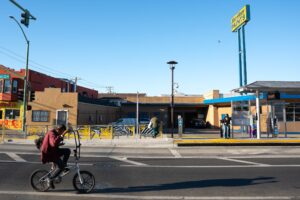Making significant reductions in your household’s energy use becomes a lot easier when people around you are making changes too. The Palo Alto-based nonprofit Acterra has developed a program that takes this into account: ACTerraGreen aims to reduce people’s carbon footprints by reaching out to them through existing social networks, such as their place of worship, school, or workplace.
ACTerraGreen campaigns start with the formation of a “Green Team,” group members trained by Acterra to manage their community’s campaign. The program provides website content for online sharing of tips and resources, plus a communication plan to connect and motivate the community to take on various monthly energy-saving “challenges.” Members try out the suggestions at home and anonymously report back; the results are tallied and shared at the end of each month.
“Individuals act like the people around them,” says Debbie Mytels, associate director of programs at Acterra. ACTerraGreen seeks to “use the synergy of a group to create a tipping point” that will change behavior by changing social norms. Talking about energy reduction practices and tips over the watercooler or when picking up the kids becomes part of a group’s casual interactions.
To date, more than 750 households in eight communities have participated in an ACTerraGreen campaign. The program is available to groups on the Peninsula, as well as in other areas if transportation costs are covered. For information, contact Ellen Wilkinson at ellenw@acterra.org or (650)962-9876 ext. 353.
Green@Home, another Acterra program, provides free “HouseCalls” to people living in Palo Alto, Redwood City, Menlo Park, and Sunnyvale, performing energy audits to pinpoint ways to reduce household carbon emissions. The two-person volunteer teams also provide free CFL bulbs and other simple energy-saving devices. Green@Home’s goal is to audit 1,000 houses in 2009 and then expand the program to more cities. A manual for recreating the program, funded by Bay Area Air Quality Management District, will be available at www.acterra.org in early 2009. Contact Liz Muir at lizm@acterra.org, ext. 350.

.jpg)



